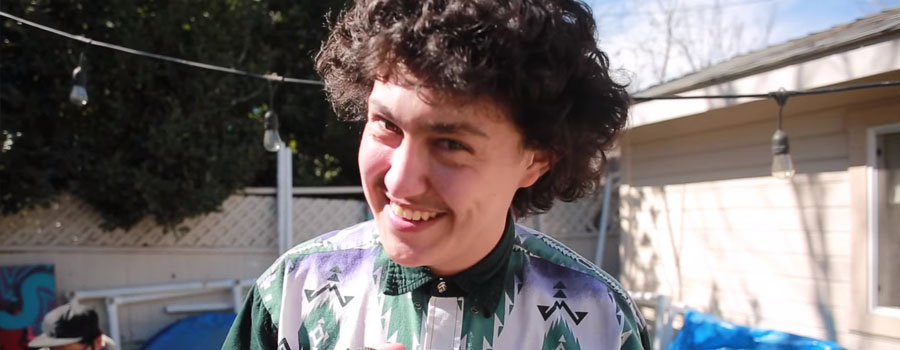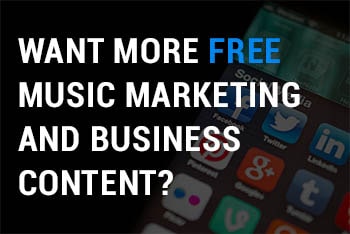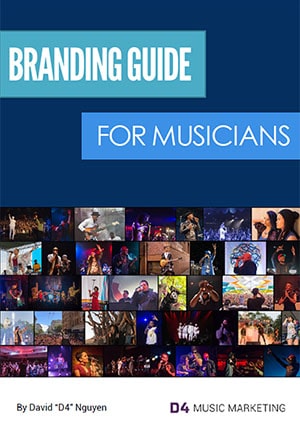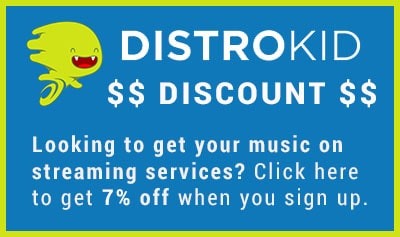
With all the events that have recently transpired for this young artist, the name of his latest album, “The Rise of Hobo Johnson,” couldn’t be more appropriate.
In the last 3 months, Hobo Johnson has:
- Reached 700k+ Facebook followers (up from a few thousand)
- Gained 256k+ Youtube Subscribers
- Sold out shows all over the U.S. and U.K.
- Reached #11 on Billboards Heatseeker’s Chart
- Had at least 4 of his songs at the same time on Spotify’s U.S. Viral 50 Playlist
- Booked his first big festivals – Bumbershoot in Seattle and Outside Lands in San Francisco
In the world of virality and mainstream artists, this is relatively impressive. But to the average independent artist, this is an astronomical feat for a 20 something-year-old adult from Sacramento.
How did he do it? It was all thanks to this video he released with this band The Lovemakers on March 7, 2018:
It wasn’t a hot recorded song or album that propelled him to internet stardom. It was a NPR Tiny Desk submission video recorded in what looks like someone’s backyard in Sacramento.
After watching the video, you may be inspired to create your own Tiny Desk submission, but don’t expect the same success.
The fact is Hobo Johnson is a one of a kind artist with his own unique energy.
This story hit home for me, because I currently do live in Sacramento where Hobo Johnson is from. I’ll be honest and admit I underestimated Hobo Johnson. I’ve known about him for a couple years before this happened, but it never occurred crossed my mind that he was capable of this kind of success.
In this blog, I will share what stood out to me about his story that I think other artists can learn from.
Note: The quotes you see are actual comments people have left related to Hobo Johnson. I find that reading and studying comments is very insightful.
1) Going viral is still NOT a viable strategy.
“Literally watching this man rise in just the past 2 weeks blows my God damn mind.”
As inspiring as his story is, trying to go viral as a way to become “successful” is not an effective strategy. It’s much harder than it seems.
However, this doesn’t mean that you shouldn’t study the various factors or characteristics of a video that can increase the likelihood of something you create going viral. This is a good habit, because it shows you what makes great content that people want to share.
Take a look at 3 artists who have gone viral in the past few years (I tried my best to not include hip hop artists).
2015: Post Malone with White Iverson:
2016: Rich Brian (Rich Chigga) with Dat Stick:
2017: Clairo with Pretty Girl:
If you’re not familiar with these videos, I would watch them and pay close attention to what elements or characteristics these artists have and what stands out in their songs and videos. I will touch on some of these things in this blog. After watching, you should notice reoccurring elements in Hobo Johnson’s song and in each of these 3 example videos.
The fact still remains that you shouldn’t sit around and bank on trying to manufacture a video or song so it will go viral. But, if this is still a channel you want to pursue, there are key elements that can increases your opportunity. If you’re interested in learning the science of going viral, check out my other blog.
One last point. Hobo Johnson even said himself that he was caught off guard that this was the video out of all things that caught on.
More often than not, it would appear that artists achieve viral success when it’s unexpected. I have yet to come across an artist who has gone viral because they intentionally were trying to or knew they were absolutely on the right path to becoming a viral success. Authenticity is so important nowadays that we can detect bullshit and people who are trying too hard.
You don’t need to go viral to be a success, but sometimes it just takes that one song or video to trigger a chain reaction for everything that you’ve worked for to come into fruition.
2) You can do something different and still become successful being yourself.
“He is definitely talented and different.”
I’m sure we’re all familiar with this message, but I think it’s important to reinforce in today’s society. It’s easy to get caught up in trends and conform to what is popular, especially in music.
For several years now (thanks to the internet), we’ve been seeing a shift with all types of different people becoming popular who don’t necessarily fit into the typical mold, more so then in the past it seems. There’s a market for all types of people who are: awkward, not physically fit, weird, quirky, dorky, gay, goofy looking, scrawny, shy, unattractive, have different body types or strange styles, dress funny or don’t conform to gender roles.
Because we have the ability to become our own media company (a Gary Vee reference) via social media, there’s more room for diversity and opportunity for different niches in music.
Hobo has created his own distinct sound and style that resonates with others like him. There isn’t anyone that I know that comes close to his voice.
This shift is a sign. People like different. In other words, there’s more opportunity to be accepted for who you are because it’s easier to find and connect with people who are like you through the internet.
This doesn’t mean intentionally trying to be different or over the top just to gain attention. It needs to be authentic, which ties into the next point.
3) People really appreciate vulnerability and authenticity.
“I’ve struggled with depression and anxiety my whole life and I think that’s why I enjoy his art. Not too often you see people these days being vulnerable on purpose.”
I think artists and musicians put themselves in vulnerable positions in varying degrees through their lyrics and performances. Music has always been an emotional and personal outlet, but I think we’re seeing a higher level of it now.
Even Kanye West has openly talked about his addiction to opioids, insecurities of being overweight and bipolar diagnosis.
When you really open yourself up, I feel it makes it easier for others to emotionally connect with you and relate to your music. It puts you on the same level as your fans. In a culture of superficiality and status, vulnerability brings out a layer of authenticity that people can trust and resonate with.
Some topics are so sensitive that we are taught not to talk about them, like insecurities, addictions and mental illness. In western culture, discussion of these topics can be seen as a sign of weakness that brings about shame and embarrassment.
There is social pressure to present an image of ourselves in a positive light on social media all the time, because we think that’s what others want to see. I see this quite frequently in artist bios.
Of course we want to highlight our achievements and accolades, but I believe sharing the struggles and challenges we experience are just as important because it makes for a good story. To me, music is about connection and oftentimes as Hobo says, “not feeling so alone.”
Eligh of the Living Legends, an artist whom I work with, is someone who openly talks about his addiction to heroin and is now 12 years sober from all substances. His brand has grown organically around sobriety, and many of his hardcore fans really relate to him, especially ones who deal with addiction themselves. Many of them will reach out to ask for advice and guidance. Because he allows himself to be open and vulnerable, he’s developed a deeper relationship with his fans.
Although Hobo Johnson’s persona can come off as slightly exaggerated, it’s clear that he’s coming from a place of real life struggles when he touches on topics of loneliness, anxiety, low self-esteem, depression and the hardships of growing up in a broken family. How he expresses his emotions clearly resonates with his fans:
“He sounds like he’s on the verge of a mental breakdown… hella relatable.”
“Dude, lyrically your analogies are the shit. They’re honest, creative and still very relatable. You have a lot of endearing qualities that really make you seem very much like the rest of us, shy, awkward, maybe a little ADD. Heard Peach Scone the other day and became an instant fan.”
“It is refreshing to finally hear someone that brings up inner emotions and someone who is so real and in your face and no bullshit. I’m happy there are still people like that left. I like the idea of putting your life in a song and just blast it all out in the open.”
“I have to say, the main reason I am a fan of you, Hobo Johnson, is that you’re real. Your emotions and lyrics are raw and extremely relatable. You’re very very unique. Seems like you have been through a lot of shit in your young life, and I have as well. That’s why I can relate so well.”
Hobo has a unique energy that even if you don’t necessarily relate, you can respect the art and what he brings. Although I knew of him before he blew up, I was never a fan, but I did appreciate his emotionality and vulnerability.
4) Nothing gets people talking more than controversy.
“I honestly don’t know if this is rubbish or pure gold. This is like the 100th time I’ve heard it as well.”
We know that beef and controversy in music helps get people’s attention and sell records (back when people use to buy them). In our social media driven world, anything polarizing that gets people debating and arguing is great for exposure and social transmission.
Not that Hobo Johnson is a “controversial” artist, but he has definitely stirred up a lot of discussion and even confusion about the type of music he does.
Common questions and issues that often come up when talking about Hobo Johnson:
- Is this really hip hop or rap?
- Is he a rapper or slam poet?
- Is the song good or trash?
- Is he creative or creepy?
- In Peach Scone, is the crush on his friend scary or unhealthy?
- Is he misogynistic?
- Is he actually talented?
- Is he exaggerating too much?
I think part of this “controversy” has to do with this concept of music genres being challenged from crossover artists and blending of musical styles. Apparently people have a problem when artists don’t have clear genre lines to define and categorize them.
Hobo Johnson has described his style as “low-fi hip hop with folk-punk influence.” A similar thing happened with Post Malone when he first came on the scene and people tried to describe his music. Although he calls his music “genre-less,” others have called it a fusion of hip hop, country, grunge, R&B and electric folk.
As a result of his popularity and apparently ambiguous nature, Hobo Johnson has received a lot of negative attention.
“I keep seeing his name on Facebook, but I have no idea who he is and why he’s getting so much negative attention. He keeps getting death threats, his apartment was broken into and his mom possibly being doxed…”
Here’s what his critics had to say:
“This is just awful. I cringe every time I hear his voice which is all the time because these videos keep getting passed around. Stick something sharp in my ears instead.”
“This shit is garbage. Fake deep. Creepy and cringy shit from some weirdo stumbling over his words and staring oddly into the camera.”
“The musicians don’t have much talent. Neither does he, and all he talks about is being in the friendzone. It’s fucking dumb.”
“Seems like nobody’s allowed to have a negative opinion or critique on this man’s music without an 80 comment reply of people calling that person a dick or an idiot for having an opinion. This kid has some lyrics I can dig, but his exaggerated emotions to give off his persona feels forced …. Like birthing a child forced.”
As you would expect, his fans will defend him and share their perspectives:
“I don’t understand how people believe the lyrics to Peach Scone are misogynistic. It seems like the opposite to me. What I got from the lyrics is that it’s about a man who loves a girl who is in a relationship with someone else. Even though it hurts him, he realizes that he wants her to be happy. The lyric towards the end… I just hope she doesn’t get hurt…is probably my favorite. It shows how much he cares for her.”
You often hear sayings like, ‘you know you’ve made it or become successful when you have haters’. I use to think it was silly, but from a marketing and branding perspective, it actually makes a lot more sense to me now. Hating, controversy and debating get people worked up. As a result, they comment and share more.
You also hear the saying, ‘any press is good press’. Polarizing views feed into social sharing and give you more exposure. This doesn’t mean you should create controversy on purpose to gain exposure, but be aware of its impact.
5) The power of social proof and influence is powerful.
“I went from not knowing who tf u were, to wtf is this??, to “ehh its ok”, to “Peach Scone” being stuck in my head and now I’m a fuckin groupie all in a matter of 48 hours. Seriously love you right now! Your music speaks to my soul lol 1.7k people felt the same.”
By now, we’re all aware of the power of social proof. It’s the reason why most artists obsess over how many followers or subscribers they have on social media. You know you are being subconsciously judged by the numbers displayed on your social media accounts.
It’s all about shaping a favorable image to those who don’t know you. We often associate these vanity metrics as a sign of quality. However, it’s not as influential as we might think, because it can be easily faked.
The one thing you can’t fake is when thousands of people share your content, and that’s powerful social influence. People shared that Peach Scone video on Facebook 130k times. The actual share number is even higher, because it doesn’t take into account the people who shared it after that and the shares of the Youtube video.
When things go viral and get passed around like the Hobo Johnson video, there’s a lot of interesting social science going on. What others think can influence our own perceptions of what we think is a “good” song.
You might think that anything that is “good” would naturally become popular or successful, whether we’re talking about music, books, art or movies. Historically, this has not always been the case. Many famous artists and authors have been passed on and rejected many times in their career before making it big. Why is that?
Matthew Salganik, a Princeton Sociologist, conducted a study to understand that very question.
In the experiment, he set up a website where people could listen and download music for free. It contained a list of songs from new, local artists that no one had heard of. Song order was shuffled and participants could see what others had liked and downloaded. Over 14,000 people were randomly placed into 8 different groups, or worlds, that all started with the same initial conditions.
Theoretically, the best songs should be the most popular in all 8 worlds. However, that was not the case. Some songs that were the most popular in one world, were one of the least popular in another. The conclusion was that quality or talent alone isn’t a predictor of success. Social influence plays a big role as well.
In most cases, social influence isn’t enough to make something that is actually “bad” be considered “good” or vice versa. The experiment showed that quality was correlated with success. While it may not completely change your perception of what is “good,” it’s enough to tip the scales to get people to pay attention rather than scroll past it in the news feed, especially when it is seen frequently.
This is only a brief rundown of the study. You can read it in full here:
http://www.princeton.edu/~mjs3/musiclab.shtml
This is why shared content is powerful. When people share your content and it goes viral, we interpret it as being too difficult to fake. As viral marketing expert Jonah Berger states, “Social influence only works when other people’s opinions or behaviors are observable.” In the context of the experiment, we take into account what others think and do to shape our own preferences.
“This randomly came up in my Facebook feed: hated it, couldn’t stop watching it, COULDN’T STOP THINKING ABOUT IT AND MISSING IT FOR DAYS. Found it on YouTube bc I remembered the lyrics, have replayed it 5 times.”
6) Even with more exposure, you still need to build your brand.
“Maybe Hobo Johnson will use his music to become some kind of bad ass mental health advocate.”
It seems like many artists out there think that exposure is all they need to become “successful.” To be exposed or discovered is a short term thing. You need people to actually stick around for the long term. This is where your brand comes in.
In my opinion, having a strong brand played a big role for Hobo Johnson becoming a viral sensation and resonating with so many people.
I won’t touch too much more on branding, since I talk about it in a bunch of other blogs. However, the two things I want to point out is that his brand comes from an authentic place and it is consistent.
Hobo Johnson’s persona may seem a bit exaggerated, but at the core of it, it is still an authentic extension of who he is. A self-deprecating, neurotic guy who deals with insecurity and being in the friend zone.
His brand ties very well with his story about getting kicked out of the house and living out of his 1994 Toyota Corolla at the age of 19 – hence the name Hobo Johnson (Real name is Frank Lopes).
For as long as I’ve known of him, his brand, look and style has been unchanged. Same voice. Same weird look. Same delivery and awkward sense of humor. Look back at all his stuff and you’ll see the same consistent characteristics of who he is.
When you look at his content, website, posts and videos, there’s a consistent feel that really comes off as his own. Bad grammar, cheesy and outdated graphics, corny / amateurish style and totally not professional, which makes him more relatable. He comes off as someone who’s doing really badly at trying to fit in; unconfident, unsure of himself, but it plays well to his “hobo” persona.
Even the music video he released after blowing up is consistent with his brand:
“This music video is so oddly aesthetic since it’s the complete opposite…if you know what I mean?”
His tagline on Instagram reads:
Songwriter. Poemer. AbletonLiver. Piano Player Kinda.
His mailing list is titled “join our cult.”
https://www.hobojohnson.com/cult
This is his Kickstarter campaign from early 2017:
Kickstart Hobo Johnson’s Kinda Good Music Career
Additional Resources
If you’re interested in hearing more about Hobo Johnson and his story, check out the links below.
Interview with Anthony “The Needle Drop Guy” Fantano
DJ Booth Article: I Really Wanted to Hate Hobo Johnson… But I Couldn’t
Hipster Rapper Hobo Johnson Is Going Viral — & It’s All Thanks To THIS Music Video!







